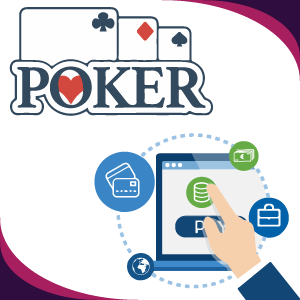Payment Gateway for Poker

Payment Gateway For Poker is the all-in-one solution for safe and secure payments
A payment gateway for poker refers to a payment gateway that functions with online poker businesses. To clear this concept, we will have to discuss the payment gateway first and then talk about online gambling to understand how payment services for this kind of business differ.
Payment Gateway for Poker
A payment gateway is a technical solution for businesses that manage online transactions safely. It is liable for approval. Even though it encrypts payment data and transmits them from the merchant’s website or app to the payment processor or acquirer. And then accepts a response (authorization or rejection) from them, and sends it back to the merchant’s web application.
However, online poker is a kind of activity that indicates risking money for a chance of winning more money. For example, participating in lotteries, online casino gaming, roulette, poker, or blackjack. It is labeled as a high-risk industry by acquiring banks and merchant service providers.
Global online gaming is a huge marketplace, expected to reach $112 billion by 2025, with the restriction being the main growth hurdle. That’s because each country has certain laws concerning gambling. And businesses offering such services have to follow local laws to enter new markets.
Top 5 payment challenges poker businesses face
Here are some challenges online gambling platforms have to trade with.
1. Getting a merchant account
Due to the high financial risks, it is not simply for an online gambling business to get a merchant account. Acquiring banks and payment service providers are careful about delivering merchant accounts to businesses in this industry.
Still, you need a payment gateway to receive payments from players and pay them out rewards or gifts. To make it possible, ensure your business fulfills all restrictions and has the license or required certifications, and get all the documents providers ask for. And prove your business’s transparency and loyalty with a clear history.
To boost your chances for merchant account authorization. So, try to get connected with payment service providers that deliver services to online poker businesses.
2. Picking payment methods
It’s quite difficult for an online poker business to offer all the payment methods customers need, taking the industry specialization into account. Firstly, most gamers are resistant to taking credit cards for gambling payments. Because they don’t want such payments to be settled in their bank accounts. On the other hand, customers may just require to pay with their selected payment mode, be it a credit/debit card, an eWallet enabling them to pay in a single click, or cryptocurrency.
Businesses should perform their research properly to offer customers payment options they’re most preferable to use, concentrating on locations and industry statistics.
3. Managing both payments and payouts
It’s vital in the online poker business to receive and earn funds transfers via several different ways, from credit/debit cards to cryptocurrencies, assuring high conversion and speed.
Opt for an omnichannel gateway that delivers almost robust processing abilities for both incoming and outcoming payments. Such payment solutions may assess higher fees, but they’ll retrieve in terms of customer satisfaction.
4. Chargebacks
Online poker businesses also face chargebacks and refunds. Every gambling application should understand that if their chargeback ratio is more than 1%, most payment processors gambling can shut down their merchant accounts.
To maintain the chargeback ratio of your poker merchant account is less than 1%. You can depend on chargeback reduction features and practices of your payment gateway for poker offers. And you should also concentrate on making every step of the payment procedure exact for the gamer, perfectly save payment details of every online transaction and enhance your customer service to silently tackle any issue with users. You must remember that completely refunds will assess you fewer chargebacks ratios with their fees and risks.
5. Adverse conditions
This feature covers all other complications and financial risks online poker businesses face.
For instance, as a high-risk gambling industry, it has to pay higher fees for payment gateway services than other industry types.
It is often affected by fraud, basically so-called friendly fraud. And at the same time has to show it’s not fraud itself.
Most online casinos have a high turnover revenue, which boosts the uncertainty gateways and payment processors have about them, as large ratios are typical to manage.
And also, stringent regulatory requirements and their conversion across the globe makes compliance a burden for the online poker business.
How to select a payment gateway for poker businesses?
The primary question to ask when selecting a payment gateway for poker business is to what level does a gateway assist to resolve all the issues mentioned above. Assure the payment solution you're going to prefer contains all the features required to meet all your industry-specific business requirements.
Usually, it must enable you to take online payments and make payouts to gamers through different payment options. The payment page, or checkout, should be user-friendly and natural, allowing the customers to select the preferred option and pay by surfing a few buttons. Long and complicated payment forms damage conversion rates.
The payment gateway for poker also must follow all the regulations and security standards, like PCI DSS. It will assist you in building trust among customers and protect their payment data and transaction details.
Another thing that affects is how much an online gambling payment gateway costs. Usually, payment gateways cost several kinds of processing fees: setup fee, monthly fee, per transaction fee, etc. The amounts also vary from gateway to gateway. So ensure to calculate charges in advance to get the best offer.
If you’re a global business, it’s essential to determine the geographical location of a selected payment gateway solution. Sometimes you require more than one payment gateway for betting to meet your business requirements around the globe. For situations like that, WebPays, a payment platform that enables functioning with various payment service providers accessible and easily, is a go-to solution.